circadian rhythm sleep syndrome
- related: Sleep and Sleep Disordered Breathing
- tags: #literature #pulmonology
- misalignment between desired sleep schedule and circadian sleep-wake rhythm
- usually diagnosed by history and actigraphy (like a watch but medical grade)
The suprachiasmatic nucleus in the hypothalamus dictates 24-hour sleep rhythmicity.
Circadian rhythm sleep disorders are a group of disorders that share a common theme of misalignment of one’s circadian rhythm with one’s sleep patterns. Subtypes include:
- Delayed sleep phase type
- Advanced sleep phase type
- Irregular sleep-wake type
- Non-24-hour sleep-wake type
- Shift work type
Delayed sleep phase type is characterized by a circadian rhythm that is displaced later in the night (e.g. 3 am to 11 am). It is commonly observed in puberty. Patients may be thought of as “night owls”.
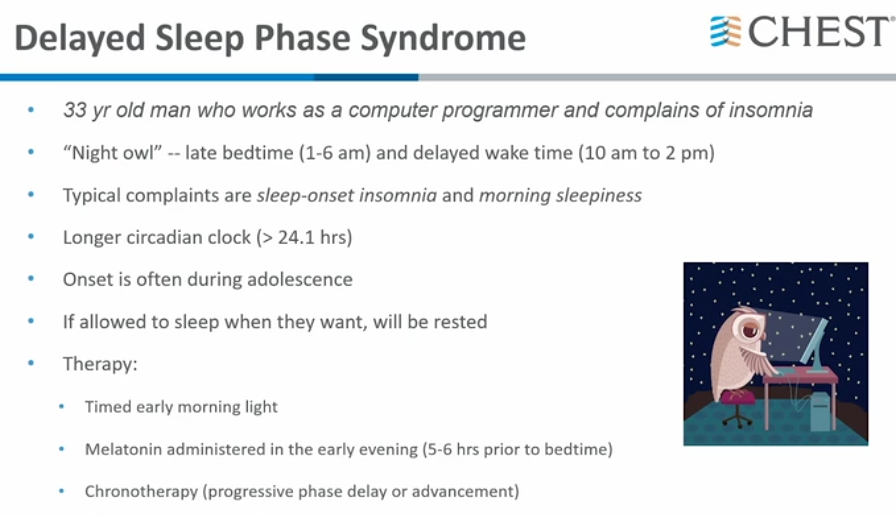
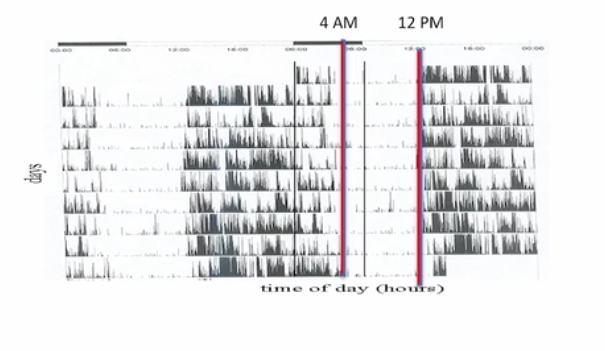 Advanced sleep phase type is characterized by a circadian rhythm that is displaced earlier in the night (e.g. 8 pm to 4 am). It is more common in elderly patients. Patients may be thought of as “early birds”.
Advanced sleep phase type is characterized by a circadian rhythm that is displaced earlier in the night (e.g. 8 pm to 4 am). It is more common in elderly patients. Patients may be thought of as “early birds”.
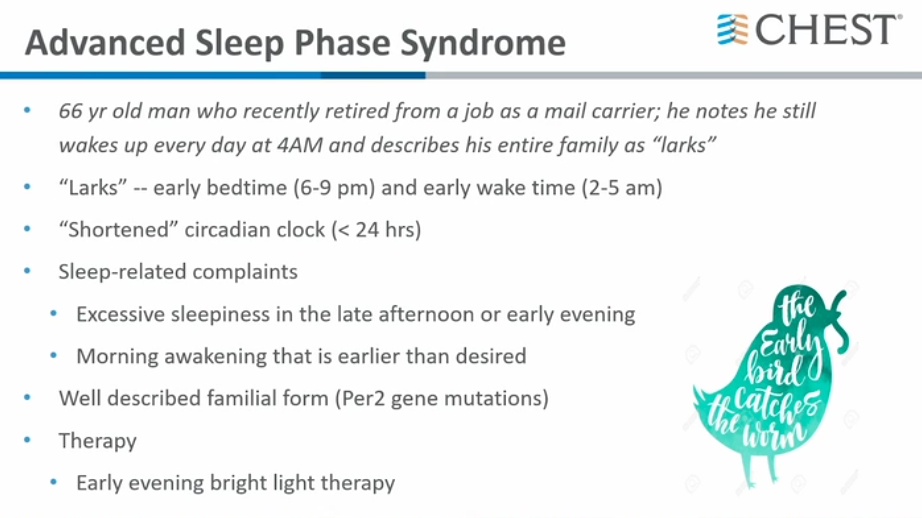
- treat by moving them in front of a light at night
- sleeps from 8 PM to 2 AM:
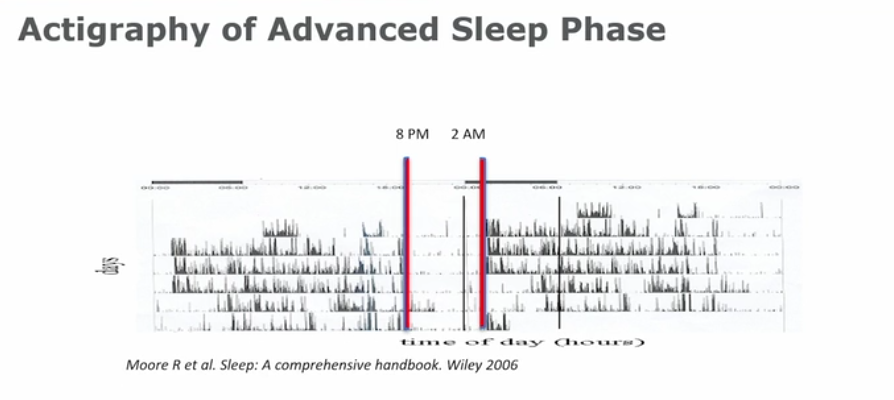
Irregular sleep-wake type is characterized by an irregular or inconsistent sleep pattern. Patients may not have any single period of significant sleep, such that their sleep is fragmented erratically into naps. Alternatively, their primary sleep period may vary erratically into various extremes of time.
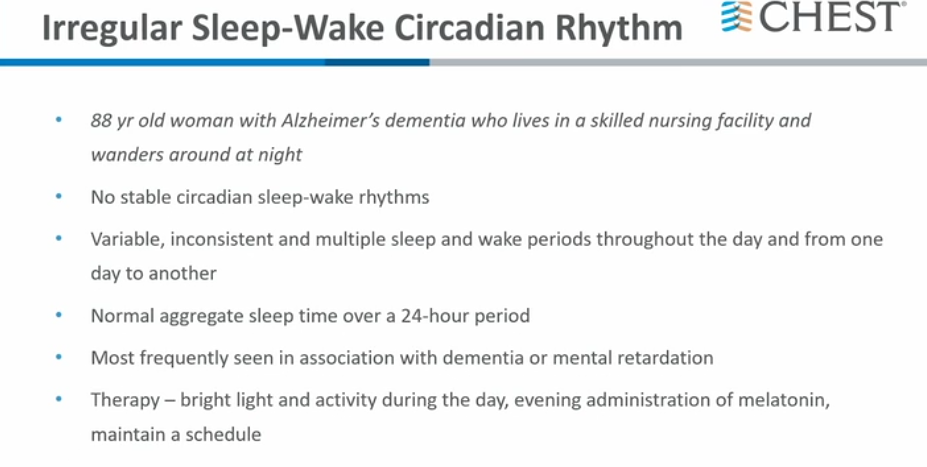
- dementia patient
- no consistent rhythm
- bright light during day, melatonin during night
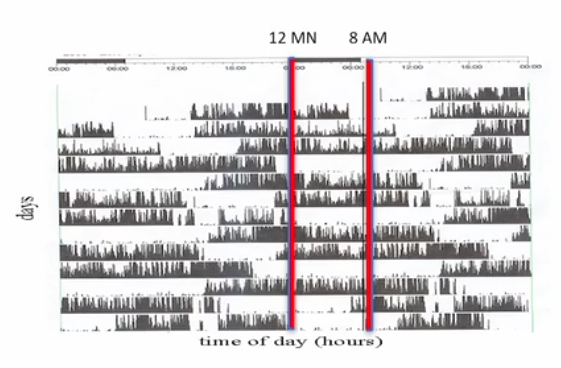
Non-24-hour sleep-wake type exhibits a circadian rhythm that is malformed into a non-diurnal pattern (e.g. the circadian rhythm is 30 hours). This disorder is most common in blind patients. As their sleep pattern synchronizes in and out of a diurnal period, their daytime fatigue waxes and wanes.
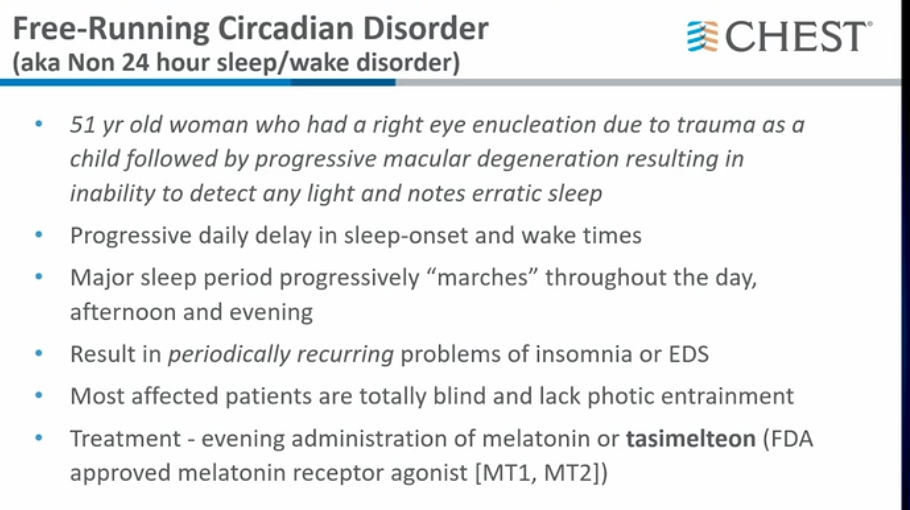
- blind patients
- only one to treat with tasimelteon
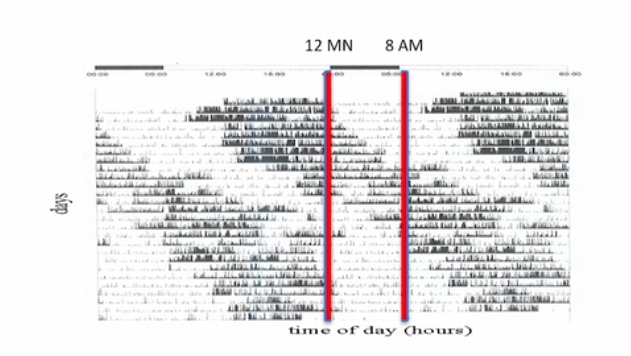
Shift work type is a sleep disorder caused by work shifts that occur while the patient’s circadian rhythm would otherwise dictate sleep. For example, a patient with shift work type may experience insomnia and wake-time fatigue after beginning a “graveyard” shift.
An important concept in circadian rhythm disorders is differentiating shift work type from either advanced or delayed sleep phase disorders. The key is to note the onset of insomnia and wake-time fatigue.
- Example: A patient working a night shift has no sleep problems until she switches to a traditional 9-5 schedule. She has a history of difficulty waking up for early-morning classes when she was in college. Diagnosis: Delayed sleep phase disorder.
- Example: A patient experiences insomnia and wake-time fatigue after beginning a new job on night shift. Diagnosis: Shift work disorder.
- delayed as advanced sleep syndrome: early evening sleepiness and early morning awakeness
- elderly: 8PM